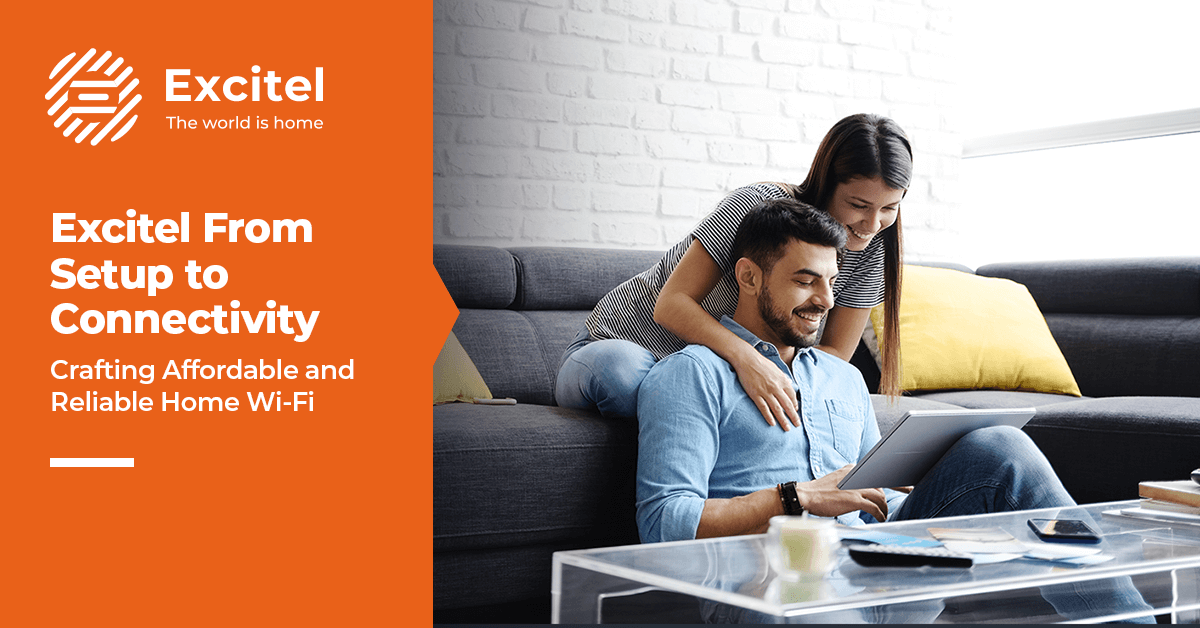Setting up Wi-Fi at home is essential for staying connected, whether for work, entertainment, or communication.
The cost of installing Wi-Fi varies depending on your internet provider, selected plan, and required equipment.
From installation fees and monthly charges to the cost of modems, routers, and additional devices, understanding these expenses upfront helps you make informed decisions.
This guide explains the costs involved so you can plan your budget and choose the best option for your home.

How Much Does It Cost to Install Wi-Fi at Home?
Wi-Fi powers everything from streaming and smart home devices to remote work and online education, making it a household essential.
When you set up Wi-Fi at home, knowing the associated costs helps you budget effectively and avoid extra expenses.
Your total cost for installing Wi-Fi depends on factors like internet service provider (ISP) fees, equipment costs, and optional services.
Here’s a detailed breakdown of what to expect.
Internet Service Provider (ISP) Fees
The first step to installing Wi-Fi is selecting an internet service provider.
ISPs offer different types of connections such as fiber, cable, DSL, or satellite, each with varying speeds and pricing structures.
a. Plan Costs
The monthly cost of an internet plan depends on the speed and data allowance:
- Basic Plans (10–50 Mbps): $20–50 per month — Suitable for light browsing and streaming on a few devices.
- Mid-Tier Plans (100–500 Mbps): $50–100 per month — Ideal for families or homes with multiple devices.
- High-Speed Plans (1 Gbps or more): $100–200 per month — Best for gamers, streamers, or smart homes with many devices.
b. Installation or Activation Fees
Most ISPs charge a one-time installation or activation fee:
- Standard Installation: $50–200, depending on the provider and type of connection.
- Self-Installation Kits: Often free or $10–50. These kits include instructions and basic equipment for you to set up your Wi-Fi.
- Promotional Offers: Many ISPs waive installation fees if you sign up for a long-term contract or bundle services (e.g., internet, TV, and phone).
c. Data Caps and Overages
Some ISPs impose data limits on their plans. If you exceed these caps, you may face additional charges:
- Typical Data Caps: 1 TB per month for standard plans.
- Overage Fees: $10–25 per additional 50 GB used.
- Unlimited Plans: Cost an extra $10–30 per month but eliminate overage fees.
Home Wi-Fi Equipment Costs
To use Wi-Fi at home, you need a modem and router.
While some ISPs provide equipment, you can also purchase your own to save on rental fees.
a. Modem and Router Rental Fees
ISPs often charge a monthly rental fee for their equipment:
- Rental Costs: $10–20 per month.
- Annual Cost: $120–240.
b. Buying Your Own Equipment
Purchasing your own modem and router can be a cost-effective option:
- Modem: $50–150, depending on compatibility with your ISP.
- Router: $50–300, based on features like range and speed.
- Mesh Wi-Fi Systems: $200–500, ideal for large homes or eliminating dead zones.
- Long-Term Savings: Buying your own equipment can pay off in about a year, compared to renting.
c. Compatibility
Before purchasing equipment, ensure it’s compatible with your ISP and supports your plan’s speed. Most ISPs provide a list of approved modems and routers.
Additional Costs for Setup and Enhancements
In some cases, setting up Wi-Fi involves more than just plugging in equipment.
Here are additional expenses you might encounter:
a. Professional Installation
If you’re not comfortable with DIY setup, professional installation can be a good option:
- Cost: $50–150.
- Services Provided: Includes connecting the modem and router, setting up your network, and ensuring all devices are linked.
b. Wiring and Network Expansion
Older homes or those with thick walls may require additional work to optimize Wi-Fi:
- Ethernet Cable Installation: $50–200 per outlet.
- Signal Boosters or Extenders: $30–200, used to improve Wi-Fi coverage in large homes.
- Custom Network Setup: $100–500 for complex installations, such as running cables through walls or ceilings.
c. Smart Home Integration
If you’re setting up a smart home, additional devices may be needed:
- Smart Hub: $50–200 to control connected devices.
- IoT Device Configuration: Professional setup services can cost $50–100 per hour.

Ongoing Monthly Costs
After installation, you’ll have recurring costs for your internet plan and any rented equipment:
- Monthly Internet Fee: $30–200, based on your plan.
- Equipment Rental: $10–20 per month if you don’t purchase your own modem and router.
- Optional Add-Ons: Services like enhanced cybersecurity, parental controls, or premium support may cost an additional $5–20 per month.
Ways to Save on Wi-Fi Installation
To minimize costs, consider these tips:
a. Look for Promotions
Many ISPs offer discounts for new customers, such as waived installation fees, free months, or reduced pricing for the first year.
b. Bundle Services
Bundling internet with TV or phone services can lower your overall monthly cost.
c. Negotiate with Your ISP
Existing customers can often negotiate lower rates or discounts by contacting their ISP’s retention department.
d. Use Self-Installation Kits
If you’re tech-savvy, opt for a self-installation kit to avoid professional installation fees.
e. Buy Your Own Equipment
Purchasing a modem and router upfront can save you money in the long run by eliminating rental fees.
Average Total Costs for Installing Wi-Fi
Here’s a summary of the typical costs:
| Expense | Cost Range |
|---|---|
| Internet Plan (Monthly) | $30–200 |
| Installation Fee | $50–200 |
| Equipment Rental (Monthly) | $10–20 |
| Buying Equipment | $100–500 |
| Professional Installation | $50–150 |
| Additional Enhancements | $30–500 |
